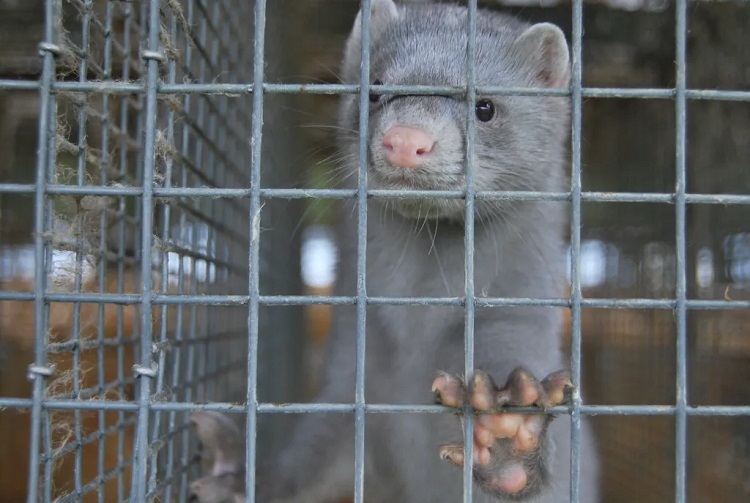Sometimes we need to make time to do the right thing. If an animal is being abused, it’s one of those times. You may not know how to report animal abuse, but you can find answers right here.
I’ve been an animal lover and advocate all my life. I think I was born with a tail. So when I founded and directed a nonprofit animal sanctuary for twelve years, I was excited to have the responsibility and position to make a difference.
The downside of the job was seeing the things I saw. The cruelty and inhumanity of some people toward animals were (and still are) repulsive.
But you can help. You can make a difference in an animal’s life by reporting animal abuse. It’s ethical, necessary, and imperative we show up for them and “give care.”
Where To Report Animal Cruelty
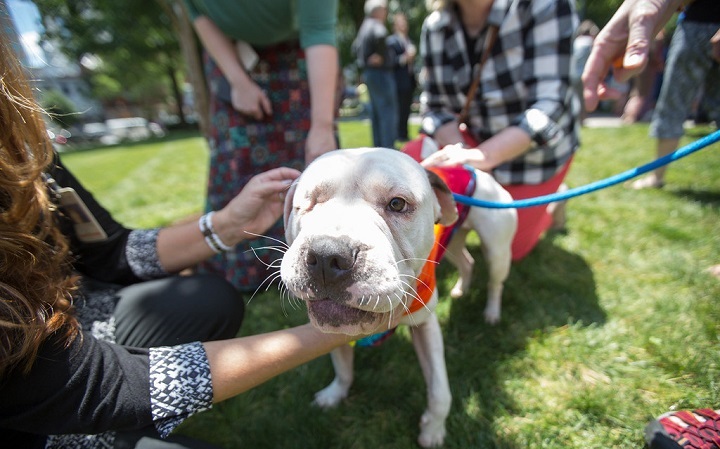
If you encounter abuse in NYC, promptly contact 311 for reporting. In case of ongoing crimes, dial 911 to alert the authorities and seek immediate assistance.
You can also file an NYPD Crime Stoppers report online.
In 2021, over 400 animals that were rescued were treated by the ASCPA. The NYPD made 101 cruelty arrests in the same year and investigated 265 cases.
The ASPCA and the NYPD work closely to combat animal cruelty, and lives are being saved. However, it takes one, just one concerned citizen, to save an animal’s life.
In other states – If you witness abuse in progress, call 9-1-1. All 50 states have animal cruelty laws, and the burden is on the state to decide what cruelty means and the penalties for it. Some are lax, some more staunch.
Those facts shouldn’t color the importance of reporting abuse on animals. You could begin by calling the police, who may instruct you to call animal control or vice versa. Local authorities should be able to give you answers or at least some direction.
Don’t…Give…Up.
Types of Animal Abuse/Cruelty To Be Reported
Following are some animal cruelty cases that should immediately be reported to stop this horrendous crime.
Animal Hoarding
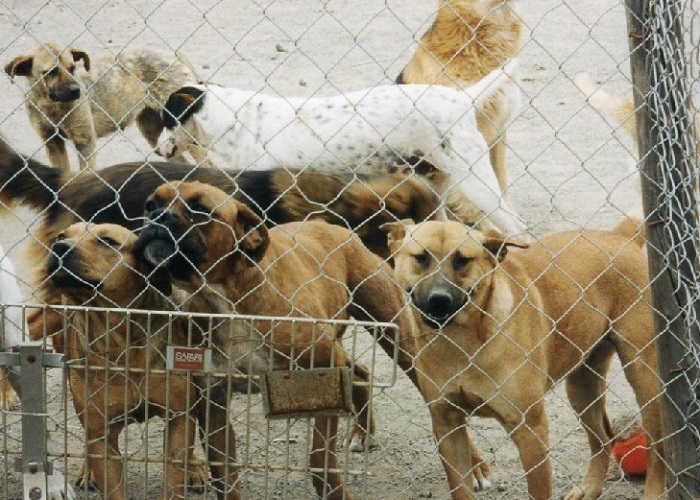
You may have heard about puppy mills which are commercial dog breeding facilities that keep animals in horrific conditions to make a profit. These places breed puppies like they’re on an assembly line with no thought for their health or comfort. They supply brokers and pet stores with puppies to then be sold to the public.
In the US, animal hoarding and puppy mills are illegal only in 14 states.
According to the Humane Society, “It’s important to know that, in many cases, puppy mills are not illegal. In most states, a breeding kennel can legally keep dozens, even hundreds, of dogs in cages for their entire lives, as long as the dogs are given the basics of food, water, and shelter.”
You can find out if your state has laws against puppy mills. If not, contact your state’s representatives and senators to kindly ask for their help with legislation to ban them.
Lack of Veterinary Care
Did you know you can report an individual for suspected animal abuse if there are obvious signs he needs a vet? Animal neglect is animal mistreatment and abuse, a crime in every state.
Neglect in various states is defined as the failure to provide essential provisions such as food, water, and shelter for animals. Moreover, certain states extend these requirements to include vital veterinary care, exercise, sanitary conditions, and protection from harsh weather conditions, ensuring comprehensive animal welfare standards are upheld.
Abandonment
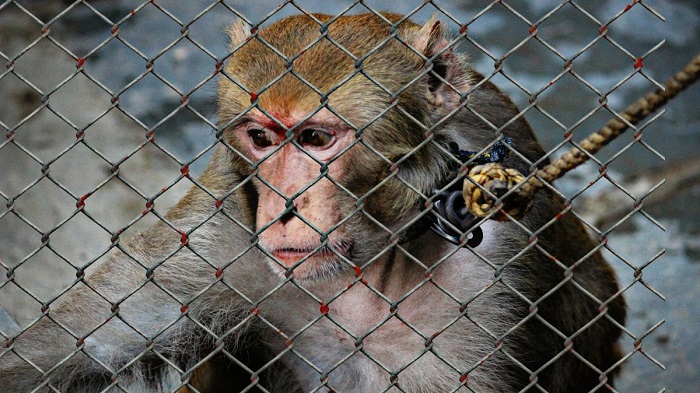
This abominable situation would fall under the umbrella of neglect/cruelty. The rub? It’s extremely hard to catch those who abandon animals in the act.
How abandonment affects animals is the number one, most important, and visible aspect of this issue. Starvation and homelessness are only two results of this unspeakable act. Since we have domesticated pets, they have no resources to care for themselves on their own. The emotional and psychological tolls – animals are sentient beings – can often be permanent.
Additionally, it affects more than just the animal:
- The environment/Ecological impact – Our world is naturally made for wildlife. The ecosystem is delicate and can be disrupted by the smallest disturbance, such as pets entering it.
- Public health/safety – Not many people want to approach a pet on the loose. Unfortunately, through no fault of their own, they can spread disease and inflict injury on those who try to help them.
- The economy – Both government agencies and the general public/animal advocates are inundated with the monetary issues that come with animal abandonment.
Inadequate Shelter
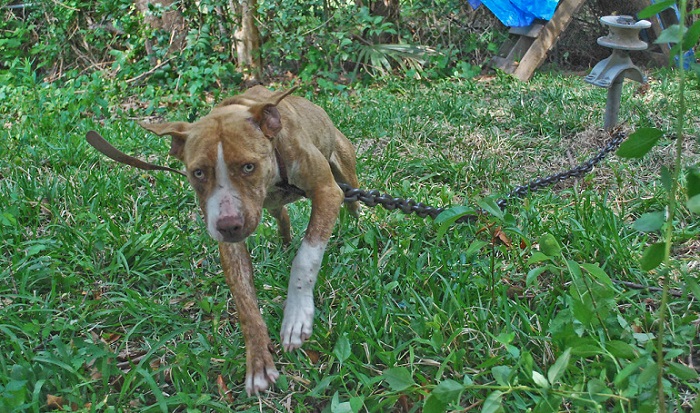
Also considered to be neglect, animals must have adequate shelter. Some states have detailed requirements to protect them, like access to proper space, ventilation, and other conditions. Certain states also have tethering requirements, like providing fresh water and shade for pets.
Pets are sometimes neglected and kept in areas with garbage, broken glass, or feces which causes harm to them. Animals are also mostly kept in kennels and cages with no room to make even normal movements.
However, it gets muddied when states require things like criminal negligence or intentional and reckless behavior to prosecute people. Plus, sometimes poverty or extreme duress can be conducive to animal abuse occurring. Still, it doesn’t make it right, and these facts shouldn’t stop us from reporting animal abuse and neglect.
Pets Left in Cars

This egregious situation is seen more commonly and should be reported immediately. Depending on the state, some laws prohibit leaving a pet in a car when the weather is extreme – too hot/cold.
Even if you’re in a state that doesn’t protect animals this way, the issue could be handled under animal cruelty law (mentioned below). If you see a pet in a car alone and temperatures are above 65 degrees or below 50, contact your local animal control agency or call the police/9-1-1.
Physical Abuse
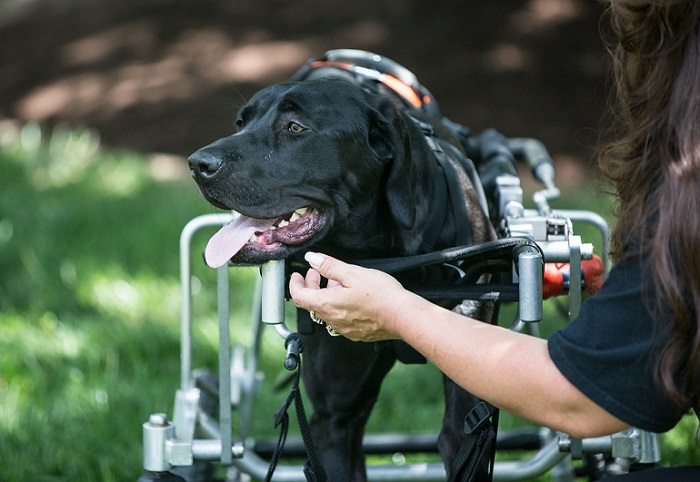
Rampant in US society, it is easier to report an owner physically abusing their animal if the animal is injured because of it. Nevertheless, we must immediately report the abuse of an animal by a person and/or object to the local authorities.
Animal Fighting and Organized Cruelty
Although this sick “sport” can break more than one law, it is especially difficult to be allowed into a situation/arena where it’s happening.
If you encounter an ongoing dogfight, contact 911 immediately to report the situation. If you suspect dogfighting is occurring at a specific location, reach out to the HSUS tip line at 1-877-TIP-HSUS. The HSUS offers a reward of up to $5,000 for tips that result in the conviction of dogfighters.
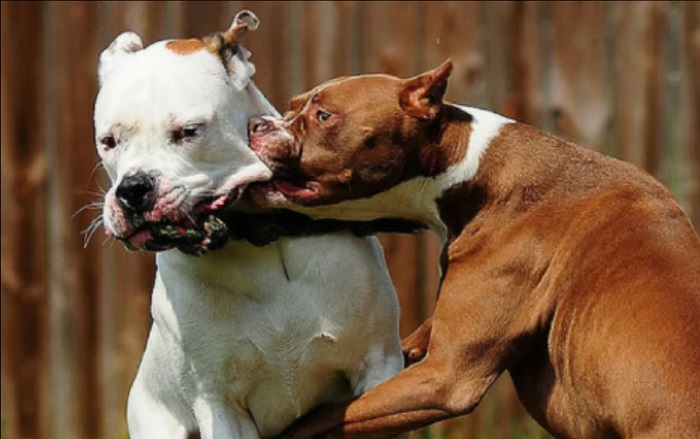
Other Animal Cruelty Issues
Apart from the abovementioned categories of abuse, there are a few others that you might not have considered yet.
Animal Cruelty on the Internet
It’s too easy to scroll by things you’d rather not see online, but reporting such instances is in our hands.
If you do see animals being abused online:
If you need to report an internet crime, reach out to the Internet Crime Complaint Center (IC3), a collaboration between the FBI and the National White Collar Crime Center. Visit their website to file your complaint conveniently.
Animal Cruelty Seen on Television or in Movies
There are steps to take to report such circumstances. Fortunately, there are humane organizations on set and whistleblowers who will report the mistreatment of animals. But don’t let that hold you back from reporting it.
What you can do is leave public comments on network TV sites. They know the power this holds with other viewers, and their reputation is important to them.
Report the abuse to PETA (even if you think they’re radical) online or by phone in the following way:
If you witness animals being used on a film or TV set or at a training compound, you can report it confidentially by contacting PETA’s whistleblower hotline at 323-210-2233 or sending an email to AFTV@peta.org.
Let’s Take a Look at the Current Federal Animal Protection Laws
Besides the horrific incident of animal neglect and violence we hear about, there are several laws in action to protect animal species. You can obtain local ordinances by contacting the city council or local humane organization.
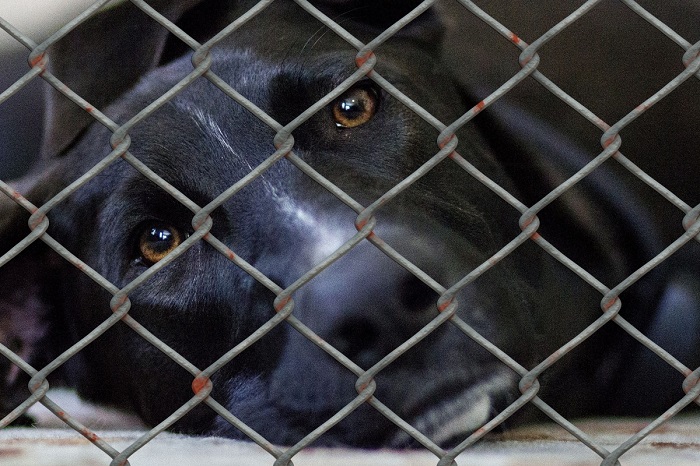
The Animal Welfare Act (AWA) – 1966
This act is signed into law. It denounces animal abuse in:
- Zoos
- Laboratories
- Puppy mills that commercially breed and sell
The main issue with this law is that only minimum standards have been set by the Secretary of the United States Department of Agriculture. Even so, it’s a sort of protection we have for them.
The law specifically points to animal handling, care, treatment, and transportation. If the acts of dogfighting and cockfighting cross state lines, that’s also prohibited.
The 28-Hour Law – 1873
This law requires those transporting animals to slaughterhouses to stop every 28 hours and allow the animals to exercise and have food and water.
The Humane Slaughter Act – 1958 (Amended, 1978)
The Humane Slaughter Act requires that animals must be stunned and unconscious before slaughter. But unfortunately, the law does NOT protect chickens, turkeys, and other birds.
The Endangered Species Act – 1973
This act protects mammals, birds, and fish that are threatened or endangered.
The PACT (Preventing Animal Cruelty and Torture) Act
It prohibits any act of cruelty against animals that is especially sadistic – such as burning, suffocating, or crushing, among other things.
The Lacey Act – 1900
The Lacey Act bans illegal wildlife trafficking and prohibits the trade in case wildlife has been illegally transported, sold, taken, or possessed.
How To Report Animal Cruelty?
To make it easier for you, I have listed the ways how you can report violence and neglect of animals.
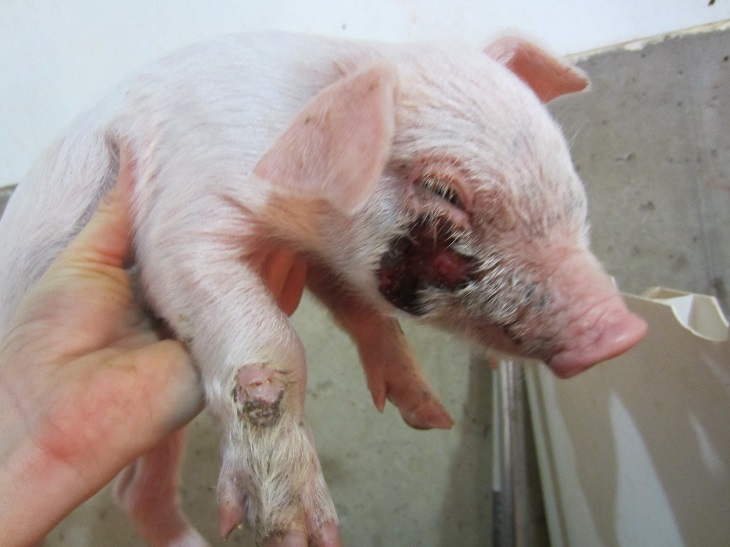
Contact Law Enforcement Agency
The first and foremost thing you can do is contact any law enforcement agency or your local animal control agency to register a complaint.
Provide the Information They Need
Speak slowly and clearly to the representative or if you’re leaving a voicemail message. Successful communication is largely up to you.
Be Accurate
Spell out the names of people, exact locations, and addresses. Law enforcement receives information all day long, so make sure you’re explicit. If the abuse happened near 6th and Main, giving landmarks to the police can be helpful in locating the address.
Complete Information About the Animal
Include a detailed description of the animal(s), the type of abuse suspected, and the place where you observed what happened. Send photographs and/or screenshots if you have them.
Avoid Social Media
Giving sensitive information on the Internet about suspected animal cruelty can put you in danger. People who know the accused or complete strangers can stalk you online and also get your personal information. We all know there are sick people out there waiting for a chance to harm.
It could also compromise the case. The only people who need to know the specific details about the abuse are the police. Online (or text) conversations can be admissible in court.
It could encourage vigilantism if the wrong people read it. Even if you post an anonymous tip, those with bad intentions could read it and start rumors or alert the accused before it’s necessary.
Things To Avoid While Reporting Animal Cruelty
- Do NOT confront the accused in any way, shape, or form. This could endanger you and even escalate the abuse.
- Do NOT take the situation into your own hands. This behavior has “Danger” written all over it. Let law enforcement handle it. You’ve done your part.
How To Remain Calm While Reporting Animal Abuse

First, if you witness it firsthand, take control of your emotions to remain calm. Just like with a child during an emergency, we’re the adults in the situation. If we’re out of control, the situation could escalate. Your and the animal’s safety might depend on how calm you are.
Also, being able to rationally report animal cruelty and abuse to the local authorities helps all parties involved.
And, Finally
Unfortunately, animals are often seen as “lesser than others.” As a result, their lives and treatment are easily ignored. Those who do care have the problem of regulations that aren’t being strictly enforced and not having anywhere to turn. REPORT ABUSE ANYWAY.
I’ve seen situations I’ll take to my grave so as not to perpetuate the problem. We need to talk about solutions and not salacious details or the ends that demented people will go to abuse animals.
Let nothing deter you from reporting animals suffering from cruelty, whether it be an inconvenience, fear of retaliation, not knowing the state regulations, or who specifically to contact. Do something, say something, and take action. The lives of animals depend on us. It is blatant inhumanity to look the other way.
We have the power to save the lives of countless animals. We can do this. Together.


